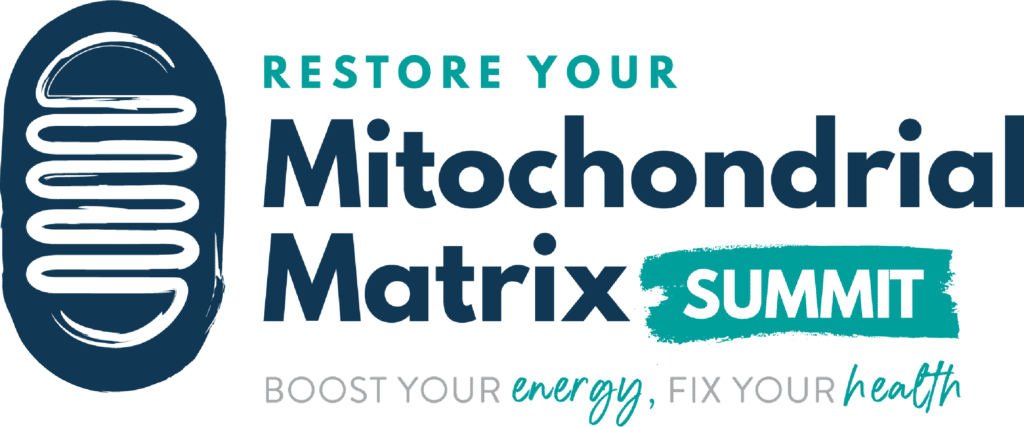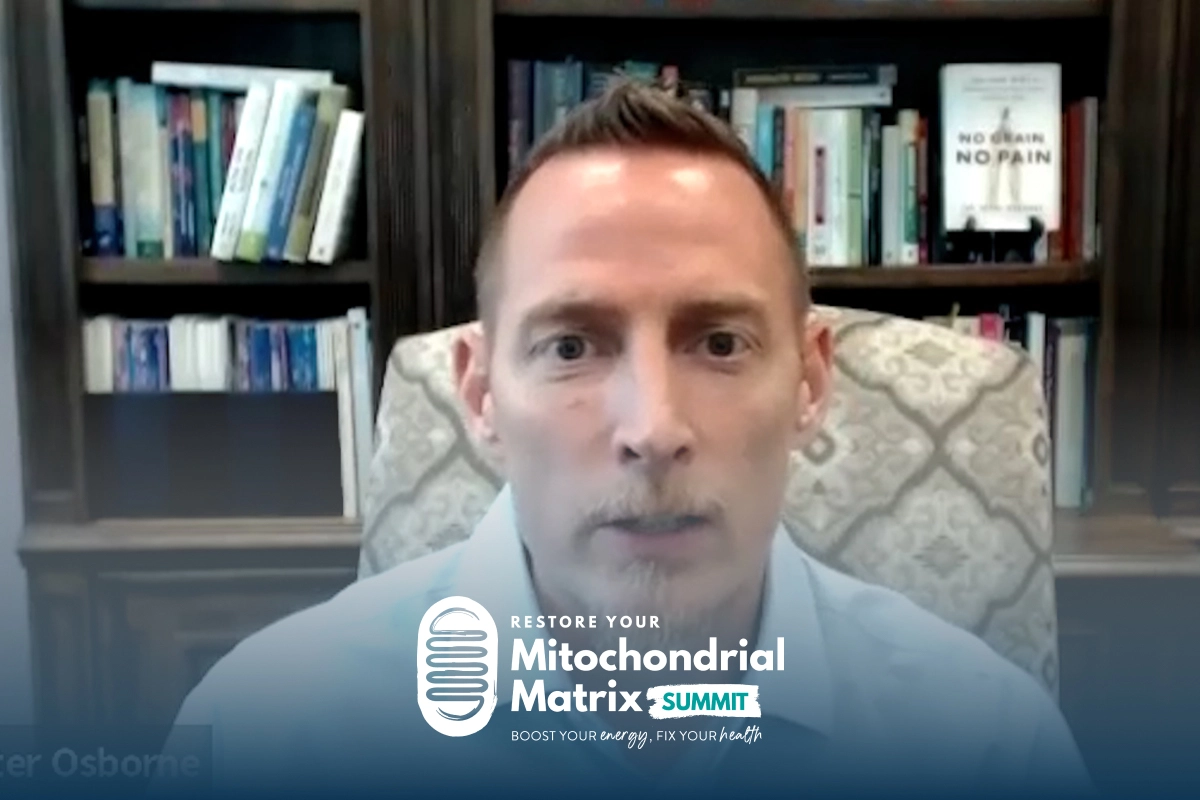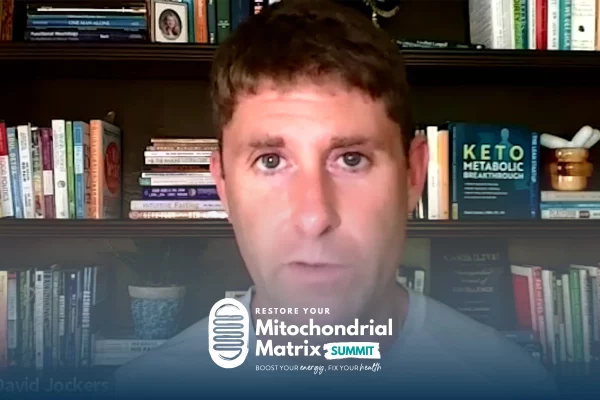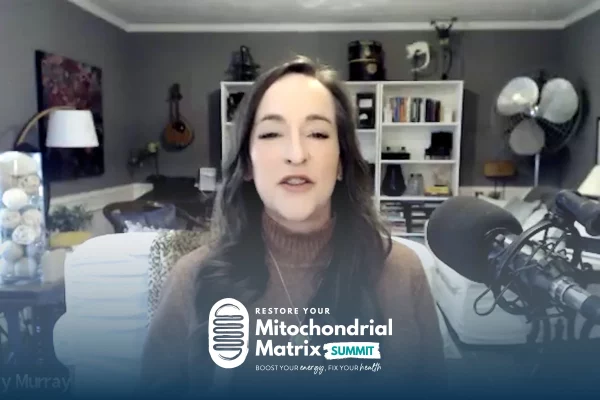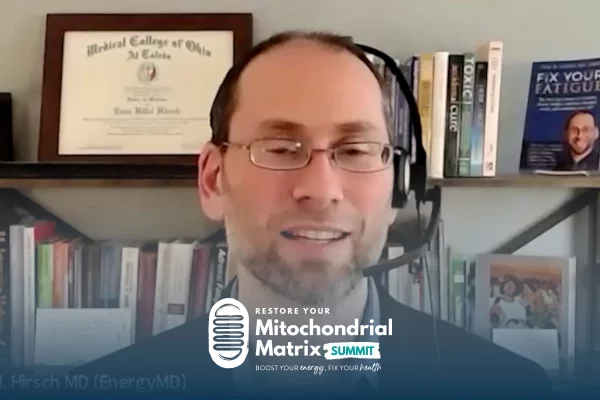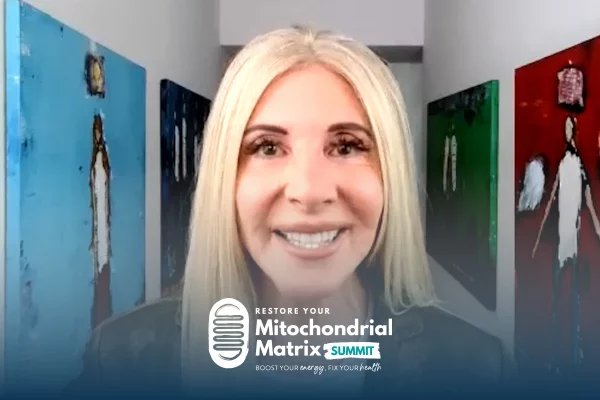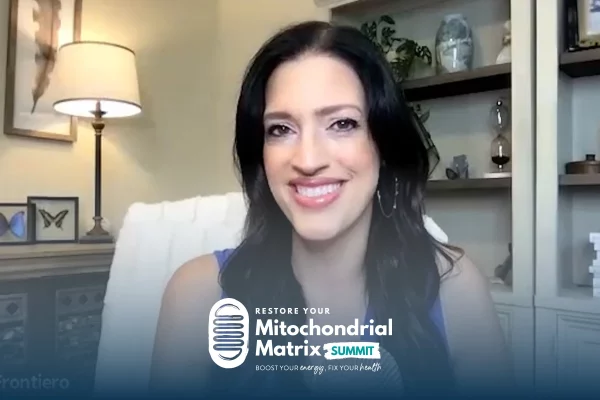Join the discussion below
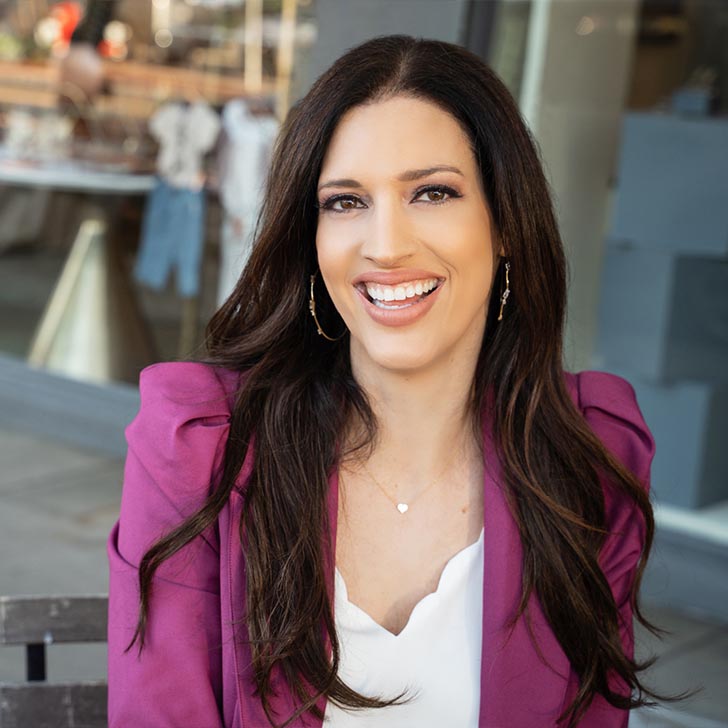
Laura Frontiero, FNP-BC, has served thousands of patients as a Nurse Practitioner over the last 22 years. Her work in the health industry marries both traditional and functional medicine. Laura’s wellness programs help her high-performing clients boost energy, renew mental focus, feel great in their bodies, and be productive again.... Read More

Dr. Peter Osborne is the clinical director of Origins Health Care in Sugar Land, Texas. He is a Doctor of Chiropractic, Doctor of Pastoral Science, and a Board Certified Clinical Nutritionist. Often times referred to as “The Gluten Free Warrior”, he is one of the most sought after alternative medicine... Read More
- Impact of gluten on the body and how it affects you at the cellular level
- The truth about all grains
- What’s happened to the food industry that is making us sick
- How autoimmune disease affects your body’s ability to produce energy
Laura Frontiero, FNP-BC
Welcome to another episode of the Restore Your Mitochondrial Matrix Summit. I’m your host, Laura Frontiero. I’m bringing you experts to help you boost your energy and fix your health so you can build the life you love. And today, I have one of my favorite practitioners in the space, Dr. Peter Osborne. Hi, Peter, welcome to the summit.
Peter Osborne
Hi, it’s so great to be here. Thanks for having me.
Laura Frontiero, FNP-BC
Yeah, I’m so excited at what we’re gonna dig into here because you are an absolute expert in all things autoimmunity, gluten, food, nutrition. You really can speak on any topic that we can dream up. But you really have a specialty in this area. You’re referred to as the Gluten Free Warrior because you’re one of the world’s leading authorities on gluten sensitivity, and you’re the author of the international best-selling book, “No Grain, No Pain.” I, to this day, I love the name of your book. It’s so good. You’re the founder of the Gluten Free Society. You’re the creator of the Glutenology Masterclass series, which teaches you how to live a true gluten free lifestyle. You also help people with chronic autoimmunity who have seen multiple practitioners, have not gotten better, are totally frustrated. You really are a specialist in all of this. So welcome to the summit.
Peter Osborne
Well, it’s great to be here, thanks.
Laura Frontiero, FNP-BC
Yeah, well, today the topic is, of course, mitochondria. We’re talking about all things mitochondria and cellular support and dysfunction. And can we start out by just understanding why autoimmunity, why gluten, why did you do this? I know you have a personal story there.
Peter Osborne
I do, it was a mistake, really. I think it was, you know, God put me in a position. I was in graduate school, and one of the things that I was doing was doing a rotation through the rheumatology department at the VA hospital. And it was super frustrating because coming from my background, heavy in biochemistry and nutrition, and understanding that nutrition was important to autoimmune already, I was given on the first day of this rotation by a attending physician, I was given a book. It’s like this thick. It’s called the “Primer on Rheumatic Disease.” And I was told, “Don’t come back on Monday until you read the book. If you haven’t read it, don’t come back.” I’m a student, I love to read.
So, to me, it wasn’t like, oh no, I have to go read. It was like, great, let me dive in. I wanna learn as much as I can. And so I read the book cover to cover, and made copious notes, and have several little sticky tabs hanging out of that book. Even yet, today, it’s on the shelf behind me. But when I got back after reading the book, I tried to organize my thoughts around what I was gonna be watching and witnessing as an, I guess, as a fly on the wall in a rheumatology wing, right? So, you know, usually when you’re a student and you’re going through these types of rotations, you’re not going in there making all the decisions.
So I just wanted to learn. And so I felt like, okay, I organized my thoughts, I come in to learn, and what I see is not at all what I experienced while reading the book. And so, I just sit back and watch for a couple weeks. And here’s what I really learned, it was super frustrating, was it didn’t matter what your diagnosis was. Like, we had all these different criteria for diagnosing diseases like rheumatoid arthritis and lupus and ankylosing spondylitis and psoriatic arthritis. But it didn’t matter which diagnosis we came to. You were gonna get methotrexate. You were gonna get steroids. You were gonna get nonsteroidal anti-inflammatories, and you might get something like hydroxychloroquine.
Laura Frontiero, FNP-BC
Totally.
Peter Osborne
But it was the same. And it’s like, so why do we spend all this time in like differential diagnosis trying to figure out what the nuance of the autoimmune reaction is when the treatment’s exactly the same. And even deeper than that, the treatments are horrible. Like, the long-term outcome of the treatment is worse than no treatment because the treatment really is largely mitigated around management of pain, which is, you could say is a noble endeavor. I call it pseudo compassion. When you give somebody something to block their pain, but don’t help them understand why they have it, you’re not helping them. You’re setting them up for addiction. And so, these are veterans, they’re coming in. One of the things I see and witness is the veterans that are coming in for their follow-ups, like maybe they’ve been at this clinic for 15 years, right? But now, they’re at the end of that. I’ve been on methotrexate for 15 years. I’ve been on steroids off and on for 15 years, and their joints are still failed, right? So they’re coming in every, I can’t remember it was Tuesday or Wednesday. It was one day of the week. Every day was surgical consult day.
Laura Frontiero, FNP-BC
Right.
Peter Osborne
And they’d come in, the ortho would come in, and say, “Yeah, you’re a great candidate for surgery.” He wouldn’t examine them. He wouldn’t touch them. He wouldn’t have a deep conversation with them. He would only have an X-ray, and say, “Okay, yes, you have erosion in your joint, and you’re a candidate for surgery.” And here, this guy or gal had been taking methotrexate and steroids for 15 years. And, of course, methotrexate destroys the gut, steroids cause malnutrition, bone loss, muscle loss. And now, you’re gonna operate on this person who’s malnourished and has existing atrophy? Like, that’s the worst thing you could possibly do because they’re not gonna recover from the surgery. And I knew that coming in as a student, like, that’s not new news. And these doctors should have known better, but they didn’t care. That was at least what I gathered from it. I can’t-
Laura Frontiero, FNP-BC
Yeah. Yeah, it seems like they were feeding the machine, right? The rheumatologists were feeding the machine to the orthopedics, and it was just a no-win situation for the patient.
Peter Osborne
Very much so, no-win situation. And so I asked my attending physician, I said, “Look, can we pull 10 people aside and do diet change? I’d just love to be a part of that, and to just see what happens.”
Laura Frontiero, FNP-BC
Yeah.
Peter Osborne
And he said, “No.”
Laura Frontiero, FNP-BC
No.
Peter Osborne
And I’m like, “Why?” And he said, “‘Cause diet’s not important.” So I pull out the book, the “Primer on Rheumatological Disease.”
Laura Frontiero, FNP-BC
Right.
Peter Osborne
And I say, “Well, if diet’s not important, why does the book say, that you asked me to read, and said don’t come back unless I read it, why does the book have allusion toward gluten? Why does it have allusion toward pesticides, which are found in food,” right, “as being triggers of autoimmune disease?” Because the book, what I gathered and garnered from the book, was there were four classes of triggers for autoimmune disease. One was food. One was chemical exposure. One was infectious microorganisms or bacteria, which we weren’t testing for either. Like, we weren’t testing any of those things in any of these patients. And the fourth was nutritional deficit, most notoriously, vitamin D. Vitamin D deficiency is super linked to rheumatological disease. I’m like, you’re not testing vitamin D. You’re not testing for infection. You’re not testing nutritional status. And you’re certainly not looking to see whether these patients need to go on a gluten free diet or have any other kind of food issues.
And it’s very frustrating because the book, you asked me to read it, and I’m just, I’m not, like, I’m the messenger, right? You told me to read it. Here I am, I’m coming to you, and I wanna do something different because what I’m seeing is that everybody gets the same thing and it’s a fail. And these are veterans and they deserve more than that. And we’re doctors and we should have more compassion to help empower people to get better. And this is super frustrating. So I was told no. I went to the hospital, the Jesse Jones Medical Library in Houston. It’s one of the largest medical libraries in the world. And I just started collecting research papers. So the first thing I did was I collected all the research that I could find on gluten and its relationship to rheumatological disease.
And it was stacks, stacks of literature, and I brought it in. I said, “Look, this isn’t me saying this. So like, dismiss me as the student. This is your peers saying that if a patient goes gluten free with RA, then there’s a great likelihood that they’ll have remission of their RA because the amount of celiacs that also have RA is very high.” And so this research was, to me, it was like, okay, this is awesome. Let’s do this. I was told no. I went back to the library and I started collecting research on fasting. Because fasting, to me, was really, it wasn’t rocket science. If you took a patient with autoimmune disease and you fasted them for 48 hours, most of their pain would go away. And in some cases, all of their pain would go away. So I mean like, okay, if they’re not eating, that means that something that they are eating is contributing to their pain. That’s not a huge leap to make. So I took in stacks of research on fasting. I was told no.
And so then I went back a third time to the library and I started collecting research on omega-3 fatty acids and joint pain reduction as a better option for pain management than steroids. And at least this way, we’re not hurting them, right? We can still maybe manage some of their pain. And I was told no, and so I left. I left really just because I couldn’t handle it, for the most part. I couldn’t handle just sitting back and not saying anything. And I couldn’t handle the pomposity of these doctors and the lack of empathy. And so, when I opened my private practice, one of my very first patients was a little girl. She was nine. She had a diagnosis of juvenile rheumatoid arthritis, and she had been diagnosed at the age of two. So from the age of two to the age of nine, they had been pumping this little girl full of methotrexate, and they still didn’t control her pain. She had a permanent port embedded in her arm because she was in and outta the hospital to get pain management so frequently. And so seven years, this little girl’s mom, her name was Ginger, her mom trusted this rheumatologist to basically say, yes, this is the path.
This is the right way. This is the only way, right? And then at the end of seven years of treatment, they looked this little girl’s mom right in the eye, and said, “You need to go home and get your affairs in order. She’s got about six months to live. There’s nothing we can do for her, it’s over,” right? And so, you think of that. I mean, you trust that doctor, like that’s part of it, right? You trust that doctor. That doctor’s telling you nutrition isn’t important. So first and foremost, screw you for being that way, for telling me something that you’re not qualified to tell me. Like, you could tell me that this is the path forward with medicine, but you cannot, through your qualifications, tell me anything about nutrition because you don’t know anything about it, especially that it doesn’t work, right? And so that, like there’s that. And then there’s also, this little girl is dying. And so you’re dealing with that emotion as a parent. Like, what am I gonna do? So, when I met Ginger at nine years of age, I was the last resort. Like, I wasn’t like the first doctor getting to come in and have the advantage, right? I was like, okay, we’re gonna die, so we better work fast, right?
Laura Frontiero, FNP-BC
Right.
Peter Osborne
And I’m also the crazy chiropractic nutrition guy, and so, there’s already, as you know, in the world, there’s already this massive distrust and propaganda against my profession, even though we’re extremely qualified, that the rest of the world doesn’t know exactly what our qualifications are. Even though we do more hours in school than medical doctors.
Laura Frontiero, FNP-BC
Well, that’s by design. That’s all part of the master plan.
Peter Osborne
It is. So I’m working uphill against a mindset ’cause Dad’s not on the same page as Mom. But, your daughter’s dying, so what else are you gonna do? So the first thing we do is we test her for gluten sensitivity, she’s positive. Obviously, we get her off of gluten. Within six months, the port comes out of her arm. She doesn’t need the pain management anymore. But she was also allergic to blueberries, which we came to find out, and every morning Mom would give her a blueberry smoothie. ‘Cause blueberries are a superfood, and that’s kinda the gist, right? So-
Laura Frontiero, FNP-BC
Yeah.
Peter Osborne
We got her off of blueberries, and within a year she was in total remission. And you know, that was 20 years ago. She’s gone on, graduated high school and college.
Laura Frontiero, FNP-BC
Yeah, you saved her life. You saved her life, I mean.
Peter Osborne
Yeah, so that’s how I stumbled into this whole thing, you know, really because of Ginger. And strangely enough, too, I had a neighbor, I had a neighboring doctor. He was an orthodontist, and he had an opening house at his practice. He had just moved into the building I was in. Well, he invited all his friends, his dentist friends. And his wife and I, we had like a four hour conversation about gluten. And this was, again, before I was like doing a deep dive. So she really helped me kind of, she shared a lot of her experience with it, and helped me kinda research it even more, right? And then, so Ginger falls in my lap, and now I’m prepared, right? As the old saying goes, chance favors the prepared. And that’s, I think, those two experiences really prepared me for that.
Laura Frontiero, FNP-BC
Yeah, and over the years, you have really done so much extraordinary work around the impact of gluten on the body and inflammation and how it affects you at the cellular level, the gut level, how it creates illness and inflammation, you know, autoimmune disorder. Can you talk a little bit about the impact of gluten? What’s the big deal about it? Why are we having so much trouble with it? What’s the problem there?
Peter Osborne
You know, there’s a lotta problems, and it’s not just gluten. You know, when I wrote my book, “No Grain, No Pain,” I didn’t say no gluten, no pain. I said no grain, no pain, and that was on purpose. Gluten is a family of proteins, if we’re defining what it is, it’s a family of proteins found in grains, it’s soluble in alcohol, and it comes in multiple different varieties. So like, for example, the most well-studied gluten is gliadin, which is one of the types of glutens found in the wheat varieties. You know, you’ve also got other kinds of gluten beyond that. For example, there’s a form of gluten in corn that a lotta people are just not, they’re not aware of. It’s called zein. And there’s a form of gluten in rice called orzenin. And so it doesn’t matter the grain, you’ve got different kinds of glutens and you have different properties, but they’re all very, very similar. And when a person has genetic propensity to react to gluten, what that means is, so what is gluten sensitivity? Gluten sensitivity’s not a disease.
Celiac is a manifestation of gluten sensitivity. And so, we could say that everyone with celiac disease is gluten sensitive, but not everybody with gluten sensitivity will develop celiac disease, and they will develop other forms of inflammatory problems, right? So there’s celiac disease, which is one of the most well-studied conditions related to gluten, but there’s rheumatological disease, autoimmunities, there’s Hashimoto’s, which is an autoimmune thyroid disease. There’s non-alcoholic fatty liver, autoimmune hepatitis that can result as, or can occur as a result of gluten. There’s diseases of the skin like eczema and psoriasis that can occur as a result of gluten. There’s diseases of hair loss, alopecia areata. I’ve seen, wow, what I have seen with full reversal of women who have no hair is amazing on a gluten free diet. And so, gluten is a trigger. I think the element of gluten is that, for the people with genetic propensity to react to it, when you eat it, you activate these immune genes that create inflammation in response to the exposure. And so it’s a normal thing. We think, okay, it’s abnormal to have inflammation.
It’s normal for your body to produce inflammation against what it perceives to be a foreign invader or a dangerous substance. And so people with gluten sensitive genes will perceive gluten, not as a protein they can digest, they’ll perceive it as a protein that is going to be a threat, and so they’re mounting an immune response against it. And it’s not always like the classic allergy response. Like the IgE, my lips are swollen. I’m breaking out in hives. And it’s also not always the other one, the IgG response, which is what a lotta doctors measure. When they’re trying to look for celiac disease, they measure something called anti-gliadin antibodies to IgG.
They’re measuring an IgG. And so there’s IgG, there’s IgA, there’s IgM, there’s immune complex, there’s T-cell response. So there’s different types of reactions that people can have to gluten. There’s different weapons the immune system can make or produce in response to gluten exposure. And really, that’s where a crux of the diagnosis is, is so many people don’t get the right testing to determine whether or not they should change their diet. They get simplified celiac testing, but as I mentioned earlier, although everyone with celiac disease is gluten sensitive, not everybody with gluten sensitivity will manifest celiac disease. So if you’re looking for celiac disease and you don’t find it, it doesn’t mean that person doesn’t have an issue with gluten.
Laura Frontiero, FNP-BC
So you’ve broken down now that gluten is a much bigger issue than just wheat. You’ve explained that gluten is in corn, gluten is in rice, just different forms of gluten. And you’ve broken down that, you know, testing sounds like an art form. Like you really need to work with somebody who understands how to test for this. So let’s say somebody, you’ve identified somebody with a gluten sensitivity, and now you’re looking at helping them support and heal their bodies. Can you talk about what’s happening at the cellular level? So specifically, mitochondrial level, cellular level, what is the gluten doing? Like, what’s happening to people who are sensitive to it?
Peter Osborne
So one of the biggest elements to it is an inflammatory cascade that can occur, and we’ve identified a number of different ways that inflammation can occur. One is through the activation of a series of compounds called TLRs, toll-like receptors. And these toll-like receptors are immune system receptors, and when activated, will produce different types of cytokines or different types of chemicals that create an inflammatory response. We’ve also got antibodies that can be produced against gluten. And so antibodies will bind to gluten and create what’s called an antigen antibody complex that damages tissue on its way out. So you’ve got, your immune system is trying to neutralize something, but in the process of that, it’s creating an inflammatory cascade. And if that inflammation is intracellular, it’s gonna damage the mitochondria. But then you also have one of the properties of gluten on the GI tract, which is it creates malabsorption and malnutrition. So if you think about just like the biochemistry of how mitochondria functions, there’s certain nutrients that you have to have in order for the mitochondria to generate energy from the food that you eat, right?
So if we’re talking about high performance, great energy production, imagine you’re gluten sensitive, and your body is malabsorbing CoQ10, which is one of the key nutrients your mitochondria needs to generate energy. It’s the rate-limiting step of energy production. And so now, your CoQ10 is low because you’re eating a food that’s preventing you from properly absorbing it, right? And so now, your mitochondria are not generating energy, so you’re tired, right? And what most people do when they’re really tired and super brain foggy is they go to the doctor, right? And then they get usually some kinda prescription, or they get stamped with a crazy card, depending on the type of doctor that they have, right? Depending on the level of symptoms. But a lotta times, doctors don’t measure mitochondria function directly. They don’t measure nutritional status. They do what’s called a CBC, complete blood count, and a chemistry profile, which measures very fundamental, basic things about the blood.
And it’s not comprehensive at all, but most people don’t know that. So their doctor runs these labs and says, “Oh, your labs are normal. You’re probably just stressed out. You need to get less stress.” Well, what the hell is that supposed to mean? Get less stress or have less stress. And so they’re kinda left to their own devices until the problem progresses. And then once it progresses beyond just a simple CoQ10 deficiency, again, that’s just one example, but there’s also other nutrients that can be malabsorbed, the B vitamins, vitamin D, et cetera. Once all that progresses, you know, now, they have other serious problems. ‘Cause, when the mitochondria don’t generate energy adequately, that affects the heart, and it affects the blood vessels because they need energy.
And so, what happens to some people, guys, in particular, this happens to, their blood pressures go up, right? And so now, their blood pressure’s up. Their doctor’s saying, “Well, we need to put you on medicine.” Most blood pressure medications block CoQ10. So that very same problem that we started this scenario with, again, just a hypothetical example, they’re now taking a drug that blocks the nutrient that gluten was also blocking, and so now their problem isn’t really getting any better. Their blood pressure’s coming down, but now they’re even more tired because they’re suppressing, right? They’re suppressing their physiology to bring that pressure down. They’re not engaging their nutrition. They’re suppressing their physiology through artificial chemistry.
Laura Frontiero, FNP-BC
Ooh, you just said something. They’re not engaging, say that again. They’re not engaging their nutrition, they’re suppressing their physiology.
Peter Osborne
That’s it, yeah.
Laura Frontiero, FNP-BC
Yeah, that is a concept. Wrap your mind around that, everyone, suppressing physiology.
Peter Osborne
Yeah, you always lose when you suppress physiology. It’s a losing battle. I mean, there are times in an emergency situation where suppressing physiology might keep somebody alive, like an acute stroke or heart attack, right? Or, you know, somebody with a clot and you need to suppress clotting for a little while. Like that’s okay. But when we’re talking about general chronic inflammatory diseases and chronic autoimmune diseases, suppressing physiology always leads to a worse outcome than the disease itself.
Laura Frontiero, FNP-BC
That, absolutely, a lose situation. And that’s what so much of the foundation of our Western medicine model is built on. We suppress physiology for everything.
Peter Osborne
Right, it’s become, well, you know, it’s the cliche, the pill for every ill. The pill for every symptom. And so it’s become more of a, how can we market and create more diseases. I use a term diseasify, right? So it’s when we take a normal aspect of life, and we turn it into a disease. Like a classic example of that is menopause. You know, we now look at and view, we view the process of change as a disease process that needs to be medicated or surgically operated on. And there are various, a sundry other examples, but that’s probably one of the more common ones, you know, for women as they go into the change.
Laura Frontiero, FNP-BC
Yeah, so what are your thoughts? Totally agree, I’m gonna be 50 this year, and I’m looking at menopause coming around the corner, and it is seen as a disease state. It’s not a disease state. It’s a state of health. It’s a transition.
Peter Osborne
Right.
Laura Frontiero, FNP-BC
There’s some things you can do to help yourself fly through it feeling great. Yeah, so what are your thoughts on people who test fine for gluten. You’ve run the test, gluten doesn’t seem to be a problem. What do you say to those people?
Peter Osborne
So there are other aspects of grain that we also consider. So when people come to see me, it’s not just, let’s just test for gluten. It’s a whole comprehensive battery. You know, I mentioned earlier what the “Primer,” that book taught me, was there were four biochemical categorical triggers for autoimmune disease. Number one is food. So we don’t just test for gluten, we test for other food as well. So if you’ve eaten it or heard of it, we test for it. We test for chemical exposures, and whether it’s heavy metal or whether it’s chemicals found in food, like dyes and preservatives, you know, things like meat glue, tissue transglutaminase, we look at those elements and say, okay, are those problems? We also look at their nutrition status.
Are they deficient in vitamins, minerals, or nutrients? And also, are they deficient in their ability to digest and process the nutrients from the food that they eat? Because if their pancreas is inflamed or their liver’s inflamed, they’re gonna struggle with digestion, right? If their stomach is inflamed, they’re not producing adequate stomach acid, they’re not gonna absorb minerals properly. And so all that needs to be looked at. And then, we also look at the microbial aspect of the GI tract, because there’s a parameter in autoimmune disease. And, man, we’re learning so much about this over the last 10, 15 years, and the research is just exploding. But it’s a concept. There are two concepts.
One is called molecular mimicry, which is where the wrong kinds of bacteria, if they overgrow in your intestines, they can produce chemicals that can mimic your own tissue. So like, for example, bacteria make a toxin that looks like thyroid gland tissue. And so, initially, the body is normally reacting to the toxin from the bacteria. But as time goes on, it starts looking at the thyroid as a threat. That’s called molecular mimicry, where the bacterial byproduct mimics the human’s tissue and triggers an autoimmune process. But the other one is there are other agents that we know certain bacteria produce called lipopolysaccharides. And these are in very, very inflammatory, caustic compounds that leak across the gut barrier, and the first place they go through your portal circulation is your liver, and so they start damaging the liver. And they’re notorious, and they’ve now been linked to non-alcoholic fatty liver disease.
And so when the liver starts to falter, you only have one, it’s not like your kidneys, you know, now your detoxification starts to shut down. And now what? Because we’re in a world where we’re surrounded by ubiquitous chemicals. There’s over 30,000 chemicals that we’re exposed to on a daily basis. 3,000 of them are approved to be in our food. And so, what do you do if your liver is not working efficiently? You start getting sick, right? Poisons start backing up, and then your body’s like, what do we do with all the poison? Shove it in a fat cell. And if you don’t have a fat cell, it says, make more fat cells, and let’s shove it in that. And that’s one of the reasons why so many people with inflammation end up gaining weight.
Laura Frontiero, FNP-BC
Yeah, you mentioned something, that 3,000 chemicals are approved to use in food, or more than 3,000. And sometimes, I know you must feel too as a practitioner, that man, we are on an uphill battle because there is a whole machine that is giving information to the American public, telling them eat this, this is healthy food. This is the wave of the future. This is what you should be feeding your kids. And I’d love it if we could talk about that a little bit, because the food industry is killing us. And I know you know a lot about this, so what’s your take on this, what’s happening?
Peter Osborne
Well, the food industry is in cahoots with the drug industry, which is also in cahoots with the government. And all together, the government puts out public service messages, and publishes things like a food guide pyramid, right? Which is not created by qualified individuals. It’s created by people with corrupt conflict of interest.
Laura Frontiero, FNP-BC
Mm-hmm.
Peter Osborne
I have personally been involved in a number of areas where I was invited one time to do a research study at University of Texas, and that we were researching the effect of CoQ10 on congestive heart failure. And so, the cardiologist had invited me to be a part of the study. They didn’t invite me because I’m so smart and they loved me. They invited me because they wanted to use me. They wanted to use my company’s CoQ10, ’cause I have a supplement company, and so they wanted to use our CoQ10 for this study. But they gave me the study parameter, and I’m looking at it. I’m like you designed the study to fail on purpose. Like, that’s what they were doing. They were trying to create a study that showed CoQ10 was ineffective at helping people with congestive heart failure. So it was intention. Their intention was to deter people away from understanding that a nutrient could be super helpful for a condition. And I wasn’t gonna play a role in that, and I called ’em out on it, and they got caught.
Laura Frontiero, FNP-BC
Wow.
Peter Osborne
And their faces turned super beet red, and they were mad, and they left the room, and that was the end of it.
Laura Frontiero, FNP-BC
Whoa.
Peter Osborne
I’ve also seen other things where lab reference ranges by some labs get changed. Most recently, one of the things that happened, and this happened with omega fat testing, so the lab company that performs the test dramatically changed the reference range to reflect people who have cardiovascular disease. And so, I’ve been running this type of testing for 15 years. I’m no newbie to it. And so, when I see the first test result come back with this brand new reference range where it’s like, wow, that doesn’t look right. That doesn’t sound right, and the research doesn’t support that. Why in the hell did they change this reference range? And I call the lab and I’m like, “Why did you change the reference range?” And they’re like, “Well, we’re really excited.
We have 50,000 new patient samples and we recalculated the reference range based on the samples.” But I’m like, “Yeah, but you guys predominantly focus on cardiovascular disease. How did you qualify the samples? You know, did you qualify the patients to make sure they didn’t have heart disease before you used them as a 50,000 normative sample population to recalibrate the reference range?” And they wouldn’t answer my question, and they actually ended up hanging up the phone on me, so I haven’t heard back from ’em since. So, you know, you have intentional, you have agencies that intentionally try to dismantle or be disingenuous about how nutrition can be helpful and can be important. You have drug funded studies, like an example, another example. So there was a study funded by backend pharma on vitamin E, and the study was horrible. It basically, the end of the story, was vitamin E increased the risk of cancer. Like that was the news bite, okay?
Laura Frontiero, FNP-BC
I remember that.
Peter Osborne
Yeah, yeah, what was that study? It was a questionnaire where they asked people to remember what they ate over the past several years. Now, okay, if I say, Laura, what did you eat for breakfast three weeks ago, Monday, would you know?
Laura Frontiero, FNP-BC
Who knows? Who knows?
Peter Osborne
No, you wouldn’t have a clue. And so how can we even validate a study like that? It’s just such junk science. But then it gets picked up by the AP, The Associated Press, ’cause they’re in on it too, right? ‘Cause who’s the number one sponsor of media? If you look at any magazine, you watch any news channel, what do you see? More than anything else, you see drug ads, mostly Pfizer, sponsored by Pfizer, brought to you by Pfizer. So the media companies, their number one source of revenue is pharma, right? Pharma is in bed with the CDC and is in bed with the FDA, and the FDA is in bed with pharma. And so you have this revolving door, right? Where the attack is on nutrition, right? I mean, look at what we’re seeing now, the attack on meat, like cow farts cause global warming. You know, you gotta eat Impossible Burgers because it’s plant-based, and plant-based is somehow generically better for everyone all of a sudden, despite years and years and years of research and despite the inability for the vegan movement to ever prove that animal meat causes detriment or harm.
I know there’s the people that say, “Well, what about the China study? And what about this study on TMAO?” Like these are studies in Petri dishes, and these are observations. And these studies are not taking into account the quality of the meat. Like, if I give you junk, swill meat from a commercially-produced factory farm where the cow gets no sunshine, gets no exercise, is corralled into a six-by-six pen, right? With shit everywhere, excuse my language, but with other cows, right? And so, they’re mustering in their own feces. They’re being fed grain, which is not conducive to cow health, right? Cows eat grass, they don’t eat grain as a staple food. And so are they gonna be sick? Yes, and if you eat that meat, is it gonna be healthy for you to consume? No, you have to consider what you eat. And so this whole plant-based movement hasn’t even engaged in that conversation.
And anytime you try to engage somebody in that conversation, they scream at you as if you’re, you know, anti-science, global warming denialist, right? Like they can’t engage with a real argument or real facts or real science, so they begin calling you names. Like, that’s the way most of that goes. And we live in such a cancel society, a culture, where everybody is canceled if they don’t have like mass, you know, mob agreement with one particular item, especially as it relates to food. And the other aspect of that psychologically, I’m throwing a ton out here, but the aspect of when, well, when you, how do I wanna say this without just making everybody super upset? I tell you what, I’m just gonna keep my mouth shut on that part. Now, ’cause I feel pretty strongly about it. And I just, I know how it will be taken. It will be construed outta context. But my point is, is you have a government who doesn’t know what good nutrition is. You have doctors in an entire medical system where the training in nutrition is absent.
Seven hours is kind of a baseline requirement. And if you’ve ever attended one of these nutrition classes in medical school, it’s a joke. It’s basically food guide pyramid, and nutrition’s not important, and you better learn how to prescribe your drugs. That’s basically what the class is about. That’s not nutrition. And so they don’t get training. And then people put them on a pedestal, and their perception is that the doctor does understand nutrition. So when the doctor says nutrition doesn’t play a role, like that’s coming from authority. And so, it’s like psychologically, the patient thinks the doctor has the authority and the knowledge to make that claim, which they don’t. And so you have a person who’s very, very confused. And then they go on the internet, and they do, you know, Google or whatever, and then they come up with stuff like this, like this summit, and they come up with other really intelligent, really great scientists that are out there and this knowledge and this research exists, but they can’t get anybody to admit to it, right?
Their doctors won’t admit to it, so they get gaslighted into taking medicine until they just get sick of it. And anyway, point being, you’ve got a very corrupt food industry. You’ve got a lot of approved ingredients that go into food that should never have been approved. It’s called the GRAS list, the generally recognized as safe list. There’s not been any real great scientific research on any of these items that we pump into our food. Europe is far more advanced in this way because they don’t have near the chemical content of, in their food, in their processed food as Americans do. And anyway, it’s just a travesty all the way around. And the only way you can really escape it, and the way I’ve chosen to try to escape it as much as I can, is to move to a farm and grow some food, and be involved with my own animals, and know what they’re being fed, and take some stewardship over the land, and take some stewardship over my own health in the best way that I could advocate for good health, which is know where your food comes from and know what’s in it.
Laura Frontiero, FNP-BC
Yeah, and if you’re not in a position, like you, Peter, where you can have a farm and learn all this, you can get to know your local farmers, and you can go to farmers’ markets. You can, instead of buying your meat at the store, you can invest in buying a half of a cow, or sharing that with another family, and getting that from a reputable source, and having it shipped, and put it in a coffin freezer in your garage, you know? And same goes with your local farmers. So, you know, it’s amazing that you have a farm and you’re doing this. And for people who think, I live in a city, I can’t do this. There are things you can do. And, you know, thank you for being willing and open to share and shed light. If you’re watching this interview right now, like this is the time to really stand up and take notice and really stand for what you know deep inside of you is true. You know Peter is telling you truth right now. And you know you’re gonna come up against people who are gonna have a conflicting argument. You’re gonna come up against the TV and the media, your family members. Stand in what you know is true. I beg you to do that. Thank you for being willing to go down that rabbit hole, Peter.
Peter Osborne
Yeah, you’re welcome.
Laura Frontiero, FNP-BC
So where is there hope? Let’s talk about solutions. So, you know, you’re in the business of helping people heal their bodies. You know how to do it. You know how to get people out of this terrible hamster wheel of inflammation and sickness and autoimmunity. So what solutions can you offer? Starting at the, you know, starting at the very basic cellular level, we gotta support those mitochondria. We gotta be able to make ATP energy to heal. You need energy to heal. So what kinda solutions do you have?
Peter Osborne
I think I’m gonna give a couple of different angles here. One is, is what you can do right now, right? What can you do right now without a doctor, without testing to improve? The first thing you can do is quit eating processed food. It’s that simple for many people, not for everyone. But for many people, just taking away the chemicals that can inhibit mitochondrial function and that can inhibit physiology that are in your food, right? Your processed food, is a huge step in the right direction. ‘Cause your body is so intelligent. It knows what to do. Your body has the innate gift from God inside of it, and it knows how to heal, but it can’t do that if it’s being poisoned all the time. So, you know, the old saying, just eat real food, is a good place to start, right, real food. And there’s six other things, really, that you can do that don’t cost you really anything at all. They just cost you time to observe and listen to your body.
So again, the first is eat real food. The second is exercise to your ability to do it. Like, exercise to tolerance. You don’t have to go join CrossFit or become an Olympian, just move, move your body. Number three, go outside, connect with the earth, get some sunshine, walk on the beach, whatever that looks like for you, wherever you live in the world, connect with the planet and you will be healthier because there’s an energy force there. And we don’t understand it all, but we know that it works. We know that it’s very valuable. Number four, go to bed on time. Put the phone down, turn off the blue lights, like get some sleep. One of the things I learned on a farm, Laura, is when you’re outside, and all the animals have been put away, and the sun has set, and the dark is wrapping around, and you see the lights, not the lights, but so much as the starlight, right? If you pick up a phone and look at that after your eyes have adjusted to dark, it is like, bssh. It is like so radically different than if you’re like daylight and you’re looking at that phone.
So you don’t realize that when you’re inside with all the lights on, but when you’re in the dark, you know, in nature and you do that, like it’s such a stark contrast. I just wanna say turn the lights off, put the phones down, and like go to bed on time. Your body’s designed to heal between 10 and 2, 10:00 p.m. and 2:00 a.m., ideally. I know not everybody can do that, but get as close to that as you can. And obviously, sleep longer than that four hour window. Number five, drink clean water. You’re 70% water. If you’re drinking fluoride and chlorine and bromine and other chemicals, you know, you’re just pumping that into you. And again, your body is so dependent on water for detoxification, so drink clean spring water, filter your water. If you live in the city, RO’s the best option. Just add minerals back to the RO because the carbon filters don’t pull all the other stuff out. They pull some things out, but not everything. And then breathe clean air. If you live in, again, if you live in the city, if you’re buying a new house and you’ve got all the VOCs, you need to get an ultrafine HEPA air purifier. Like that’s a great way to kind of, there’s an old saying that today’s necessities, or rather, today’s luxuries are tomorrow’s necessities.
Laura Frontiero, FNP-BC
Yeah.
Peter Osborne
So, you know, we all live in great houses, or, you know, nice, convenient technology. We have this life that has evolved over a number of years in America, right? Where we kinda forget going backwards and just protecting ourselves a little bit. And so, you know, it’s great to have a nice paint on the wall. It’s great to have a nice, soft couch, but there are chemicals that come off of that, and you can filter those out of your air with the right technology as well. And I would recommend to anybody, own a good quality HEPA air filtration system as a device to mitigate some of those toxins.
Laura Frontiero, FNP-BC
Yeah, quick, quick, what’s a brand that you trust?
Peter Osborne
AirDoctor.
Laura Frontiero, FNP-BC
Great.
Peter Osborne
Yeah, it’s an ultrafine HEPA, so it pulls down super small, below 0.2 microns. So if you’ve got a mold or a mycotoxin problem, it actually can pull those out the air, too.
Laura Frontiero, FNP-BC
And it’s super affordable. I mean, yeah.
Peter Osborne
Yeah, super affordable.
Laura Frontiero, FNP-BC
Yeah.
Peter Osborne
Yeah.
Laura Frontiero, FNP-BC
Okay, go ahead, keep going.
Peter Osborne
And then the last is mitigate your stress. And if you do the first six things, you are mitigating your stress, right? And then, you know, what other stress can we think of that needs to be mitigated? For some people, it’s the stress of their work, or the stress of their relationships. And for some people, it’s realizing that there’s a relationship they have that they shouldn’t. Well, I mean, there’s a million different, different potential possibilities there. But you know, just start by just being aware, and saying, hey, like, for example, let’s say you have a friend, and every time you hang out with that friend, you feel icky when you’re done. Like maybe reevaluate whether that’s a friend or whether that’s something else.
‘Cause there’s all kinds of co-dependencies and relationship issues that many people who are chronically ill struggle with. But those seven things are free. Again, it just, I mean, yeah, maybe an air filter’s not free, but the others are, right? So no cost, easy things to do. And if you find yourself in a position where maybe you’re struggling a little bit and you’ve tried a lotta things, ’cause there’s all kinds of supplements you can take for mitochondrial function. There’s PQQs, there’s CoQ10, there are B vitamins, there’s magnesium, right? And you’ve done all that, or maybe you’re doing all that, what I would suggest that you do is seek a functional practitioner and get micronutrient testing done where you can analyze what your body may be lacking, right? And once you understand what that is, because sometimes, for example, a person could be on CoQ10, maybe they’re taking it every day. But maybe, instead of 30 milligrams, what they really need is 300 milligrams, 10 times the dose. And that’s what a good test can help you understand, whether or not you’re underserved in your nutrition. Because when you take your nutrition to the next level through objective science, like, it’s night and day difference for many.
Laura Frontiero, FNP-BC
Absolutely, absolutely, these have been wonderful tips. You’re just an authority in the space, and you’re so generous with your knowledge and your time. And you have a lot out there for people to get access to support from you. So tell us where people can find you, where they can get access to your free stuff, how they can work with you.
Peter Osborne
So the best place to start is glutenfreesociety.org, and just register for our free newsletter. We’ve got thousands of articles, thousands of hours of tutorial videos. If they really wanna dive into gluten and really understand the ins and outs of the gluten free diet so that they can make sure they’re not doing it wrong. Most people do it wrong. Studies show 92% of people on a gluten free diet fail to recover from the inflammation. And so, we have what’s called a Glutenology Masterclass, which is just, it’s free. It’s 14 hours of tutorials, and they can register for that at glutenology.net/registration. Absolutely.
Laura Frontiero, FNP-BC
Amazing. Nobody gives 14 hours worth of stuff away for free.
Peter Osborne
We do.
Laura Frontiero, FNP-BC
That’s incredible.
Peter Osborne
‘Cause our mission is to save 100 million lives. You know, my foundation is at Gluten Free Society, and that’s our goal. It’s to save 100 million lives. And I can’t do that in a single solo practice, working three days in the clinic, right? So we do that through our outreach. We do that through being involved in wonderful summits like yours, and just through disseminating as much information freely for people who are seeking it out.
Laura Frontiero, FNP-BC
And you still work in a practice, too. People can actually come to you and see you, right?
Peter Osborne
Absolutely, yeah, I feel like if I ever quit that, a big, huge chunk of my relevance would diminish. Not that my knowledge is irrelevant, but you know, being in practice keeps you on your toes.
Laura Frontiero, FNP-BC
Sure does. There’s something about that.
Peter Osborne
And it allows you to evolve, right?
Laura Frontiero, FNP-BC
Yeah, and there’s something about that human connection as well, and that human touch. I mean, as a practitioner, putting our hands on people is just as important to us as it is for them.
Peter Osborne
No doubt, absolutely.
Laura Frontiero, FNP-BC
Yeah, yeah, well, where’s your practice at?
Peter Osborne
It’s in Sugar Land, Texas, Southwest Houston.
Laura Frontiero, FNP-BC
Love it. All right, well, now you know where to find Dr. Osborne. Thank you so much for being here. Just so much gratitude for you.
Peter Osborne
Well, thank you for having me, Laura. I really appreciate you inviting me to be a part of this.
Laura Frontiero, FNP-BC
Great, well, you take good care now.
Peter Osborne
You, too.
Downloads
